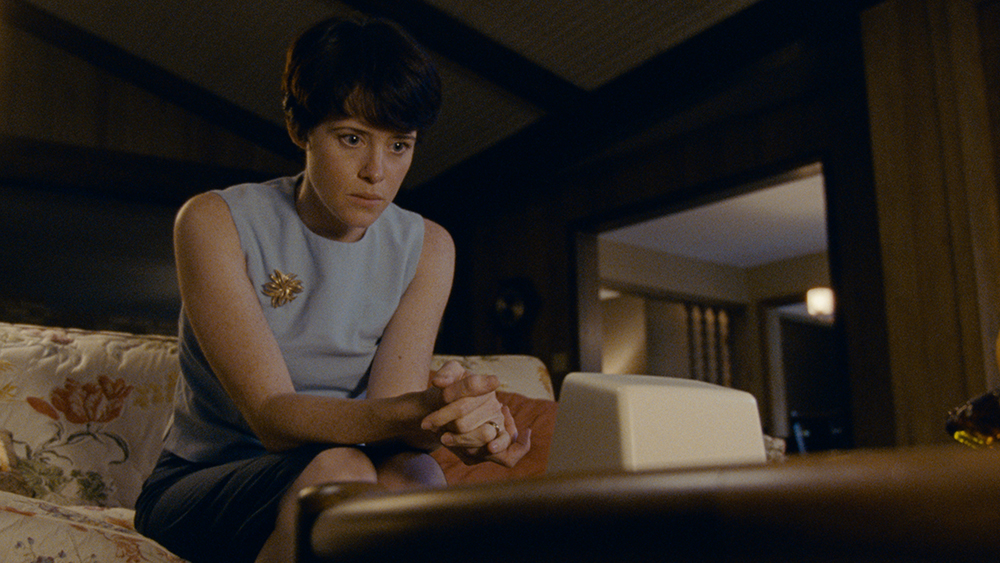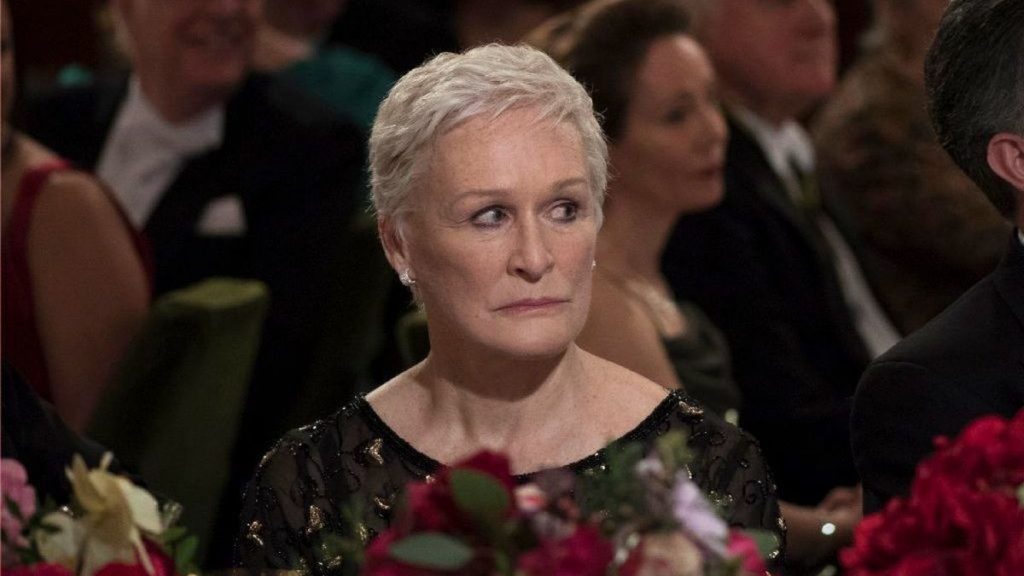‘Don’t talk to me like I’m the wife,’ Sarah Billot (Anne Hathaway) says towards the end of Todd Hayne’s latest film Dark Waters.
‘Don’t talk to me like I’m the wife,’ Sarah Billot (Anne Hathaway) says towards the end of Todd Hayne’s latest film Dark Waters. Until now, she’s had a few scenes complaining that her husband, Rob (Mark Ruffalo), hasn’t picked up granite samples on his way home from work, telling Rob’s boss that she used to be a lawyer before she had kids, and complaining that Rob’s workload has overtaken his ability to pay attention to his family. She’s been hovering around the home, chastising their three kids for their behaviour, and acting as a voiceless, sounding board for Rob’s theories about the corporate juggernaut, DuPont. She has existed to support Rob, to show what he is sacrificing in his crusade against the establishment. Now, teary and with her voice cracking, she defends him.
There is a problem with ‘The Wife’. No, not the film Glenn Close film from 2017 but the age-old, underappreciated, and undervalued role that somehow perseveres. It goes like this: A woman, often a well-respected and acclaimed actress, plays ‘the wife’ in a movie about how a man (or a group of men) do great things. She’s often stood in the kitchen when the man returns from work or waits by the cordless phone for bad news. She asks questions like ‘When are you coming home?’ and makes curt statements such as ‘I hope you know what you’re doing.’ More often than not she’ll ask the man not to do the dangerous, political, or selfless thing he’s planning on doing because of the kids, or the risk, or the ramifications. She’ll eventually come round and support him on his journey, standing up for him when someone else doubts his conviction or progress. In the final act, she might have an emotional speech, something she’ll say with tears in her eyes, something that’s just long enough for the Academy to consider her for Best Supporting Actress. Recent examples, alongside Hathaway, would be Claire Foy in First Man, Catherine Keener in Captain Phillips, Gugu Mbatha-Raw in Concussion, Laura Linney in Sully, Sienna Miller in American Sniper, Maura Tierney in Beautiful Boy, Tatiana Maslany in Stronger, and the list could go on.

In 2019, The Centre for the Study of Women in Television and Film found that only 40% of women seen in film were seen in work-related roles, compared to 60% of men, and 52% of female characters were predominantly identified by their personal life, such as a wife or a mother. We see women in their relation to men, how they respond and exist within a man’s world. Overall, only 61% of women on film had a discernible job and were substantially less likely to be seen at work than their male counterparts. Hathaway’s Sarah, for example, has a profession but doesn’t practice anymore and, despite seemingly having been to law school, has very little to contribute when it comes to Rob’s burgeoning legal case. In fact, the only contribution she makes is by accident, stumbling upon a leaflet in the glove compartment.
Some films try to subvert this, to consider the domestic trappings of marriage with consideration and gravitas. For example, Glenn Close almost won an Oscar for playing Joan Castleman, a wife who wanted and deserved recognition after years in the background. Ironically, Close told The Hollywood Reporter, ‘It was actually hard to find actors who wanted to be in a movie called The Wife’.
So, there is a chasm at the centre of moviemaking; wives are essential to cinema, as displayed by the array of women standing by their man, but wives themselves are not interesting. Once a woman has disposed of her maiden name, she herself is disposable.

The broader implication, of course, is that Hollywood doesn’t know what to do with women outside of placing them next to a man. Whether she, like Claire Foy, has had great success on television or, despite critical acclaim and awards, she’s approaching her forties and as such is ‘harder’ to sell to men as a ‘sex symbol’, like Hathaway, they’re at a loss. So along come the offers to play wives, girlfriends, mothers, grandmothers, or Aunts to a teenage superhero as a way of offsetting the problem. It also has to be noted that ‘The Wife’ role typically appears in films by male directors (who still direct around 96% of major films released) and that work by directors such as Greta Gerwig, Nicole Holofcener, and Lulu Wang, or producers like Reese Witherspoon, consider the female viewpoint with great importance they just don’t get the same recognition, culturally.
The fact is, these ‘wife’ roles don’t bring the awards attention they used to, with so many of them being ignored come Oscar season. Is that a sign of the times? Recently, in The Guardian, Steve Rose wrote about how ‘issues movies’, like Dark Waters, were once the pinnacle of Hollywood and awards season but now they’re ‘drying up’. It is time to say the same for ‘The Wife’? Absolutely! Routinely, women in film end playing second fiddle to developed male characters, they exist to pressure them or provide comfort. Even their deaths are used as character development, to give a man drive and depth. They exist to make sure the audience can see a rounded portrait of the man at the centre, and, as such, the women are painted with broad strokes and the various wives of cinema are often interchangeable from one and other. Changing this might require a more significant cultural shift, one in which society views women as more than wives and girlfriends and then cinema can follow. Or, perhaps, it’s the other way round. After all, what comes first, the chicken or the egg?
Dark Waters is in cinemas nationwide from 28th February
Also Read: ‘Birds of Prey’ & the Curse of Being Casually Queer












1 Comment
Comments are closed.